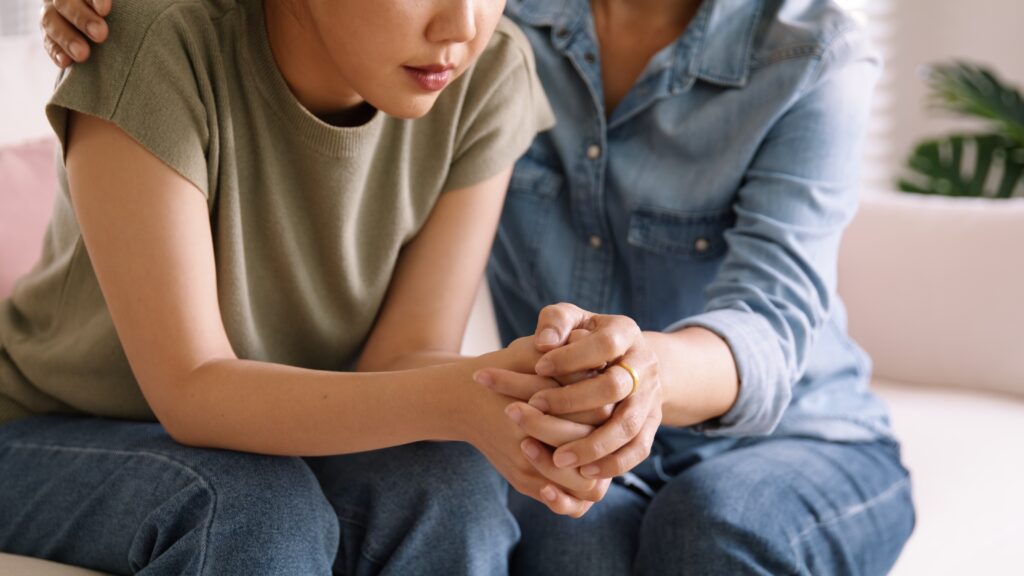One of the hardest parts of dealing with death and grief while living away from home is being apart from your family and support network.
For many international students, it just isn’t possible to get home, and that might mean missing important parts of the grieving process, like a funeral or memorial.
The cost of unexpected travel, study commitments, or work scheduling are all valid reasons for why it might be hard or impossible for you to get home to your loved ones when somebody close to you passes away. But, there are ways to feel at least a bit more connected, even when you’re far away.
If you’re missing a funeral
Thankfully, many funeral operators now offer online attendance for funeral and memorial services. While it’s not the same as being in the room with family and friends, being able to listen in real time, and in some cases share your sentiments in a live chat, can help with being able to say goodbye to a loved one and be able to support, or be supported, by other attendees.
These online viewings are quite often recorded as well, which means if time differences or scheduling clashes make it difficult for you to attend in real time, you have the option of watching it back at a later date.
Find a local place of worship
This one won’t apply to everybody, but if you’re a religious or spiritual person, then it might be helpful to connect with other people who share the same beliefs as you. Reaching out to a local church, temple, mosque or spiritual advisor is a good way to feel connected to your faith – something that helps a lot of people when they’re processing death and grief.
Have your own memorial or celebration of life, whatever that looks like to you
Just because you’re unable to be there for the official proceedings doesn’t mean you’re not allowed to have your own version, whatever that might look like for you. You might want to hold a dinner with close friends and share memories of your loved one, or maybe you’d prefer to light a candle on your own and go for a peaceful nature walk. Perhaps you’d like to get dressed up and go out for a night of dancing and celebrate the joy of being a human being who gets to experience living and loving.
Whatever feels right to you to honour the person you’ve lost and your own grief journey, do that.
Reach out for support, and keep reaching out
The best thing to do for yourself when dealing with grief is to make sure you’re surrounded by people who know what you’re going through. They don’t have to know everything, or have experienced something exactly the same as you, but sharing with other people while you unpack your grief can help it feel a little less isolating.
If you’re living among other international students and feel comfortable sharing your sadness with them, they might have some other suggestions on ways to feel more connected to back home. Even something as simple as cooking a meal you have at home can give you a bit of comfort.
Make sure you also reach out to your education provider’s support services as they can help you manage your coursework and study load. It can be really hard to focus on your academic progress when you’re dealing with grief, and it’s important that the university knows how best to support your learning during this difficult time. They can also help to connect you with mental health support if that’s something you think would be beneficial for you.
Most importantly, know that you’re allowed to feel whatever you’re feeling right now. You might feel distant and unemotional. It can be hard to accept death and grief when we feel physically removed from it. You might also feel very fragile and have a lot of anxiety. All of these emotions are valid and normal, but you don’t have to process them on your own. Keep reaching out for support. There’s no timeline for when things are ‘supposed’ to feel ‘normal’ again. You need to take everything at your own pace and be kind to yourself.





